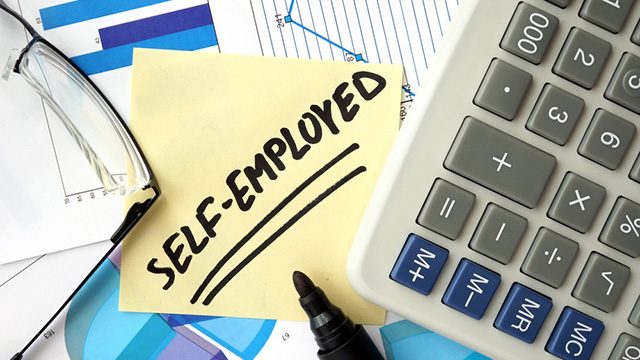SUMMARY
This is AI generated summarization, which may have errors. For context, always refer to the full article.

Self-employment is a double-edged position to be in.
It can be rewarding, as it means an unlimited income opportunity, flexible working time, and best of all, no boss to report to.
On the flip side, it is frightening. Income is erratic and inconsistent. One month you may be feasting. Another month later, you are experiencing famine. It becomes even more stressful if the income you are expecting does not come on time; or worse, it does not come at all.
If the receivable is past your payables, what do you do?
That is why mastering the art and science of budgeting is more important for self-employed individuals than it is for employees. Unlike the latter who can plot their budgets since they receive more or less the same amount every month at given periods (usually 15th and 30th), the self-employed does not have that luxury.
How do you plot your budget then? Here are some of steps you could apply:
1. Prioritize fixed expenses above all else.
Fixed expenses are those that are consistent every month. These include your utility bills, amortizations, rent or mortgage because it will be considerably difficult to continue working when these are cut off from you.
Next are your health and medical insurances. Most people immediately delay attending to these at the first sign of financial difficulties. It is not wise to do so because you would never know when something catastrophic will occur. The last thing you want to happen is for these policies to lapse because of unpaid premiums. Medications and other essential items follow.
2. Negotiate variable expenses.
Variable expenses are those which are still important for your survival but can be negotiated. Food is one example of a variable expense. You need to eat but you have control over what you eat. Fast food outlets offer meals that are well within the budget. Skipping those deserts and coffee break snacks can help save some hundreds, if not thousands of pesos.
For groceries, cutting down costs by buying cheaper yet competitive substitutes is an option. You can skip those luxury items for months when incomes are lean. Forget brand loyalty for the moment, too. As much as possible, sacrifice only the price and not the quality.
3. Avoid discretionary expenses when income is low.
Discretionary expenses are neither urgent nor important. Expenses like watching movies, dining out, and shopping are some of the expenses we can live without when our finances are in limbo.
A word of warning though: do not use your credit card to make the purchases even if you are expecting an income prior to paying the bill. In being self-employed, nothing is certain. Receivables are only receivables until they become cash. So do not worsen the situation by buying things on credit.
4. Budget expenses based on baseline income.
Ideally, budget your expenses on the income you are expecting, prioritizing the fixed expenses and “urgent” variable expenses.
In case of additional income, they can go to the discretionary expenses and savings. Apply a conservative budgeting scheme. Estimate your expenses high while your income is low.
5. Borrow from your own savings.
There will be instances that you are forced to dip into your savings just to tide things over. Treat yourself like a bank – you can borrow money from yourself but never “default” on your payment by not paying yourself back. Add some interest if possible.
6. Save more during thriving months.
When business is good, try to save as much as possible. Forget about saving 10% to 20% of your income. It only works when you are employed.
Your cash reserves should be as high as possible so that you can turn to it when business drops. Building contingencies should be one of your priorities as self-employed.
Although being self-employed is not as easy as most people think, it is nonetheless rewarding.
Once you master budgeting, you can address its downside of having irregular income, and enjoy all the perks of being a self-employed.
Got a question about personal finance? Tweet @rapplerdotcom or email us at business@rappler.com. – Rappler.com
 Kendrick Chua is a registered financial planner of RFP Philippines. He writes regularly about personal finance. He is also a Chinese language instructor, TV host, free runner, and violinist. To learn more about RFP, you may email info@rfp.ph.
Kendrick Chua is a registered financial planner of RFP Philippines. He writes regularly about personal finance. He is also a Chinese language instructor, TV host, free runner, and violinist. To learn more about RFP, you may email info@rfp.ph.
Self-employed concept image via Shutterstock
Add a comment
How does this make you feel?
There are no comments yet. Add your comment to start the conversation.